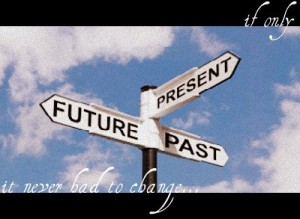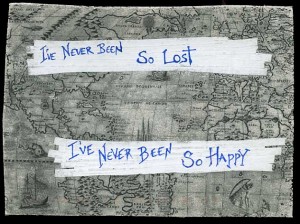 In case you didn’t know, the publishing industry is in the throes of a major revolution. With the growing popularity of e-books and the collapse of distribution channels and chain bookstores such as Borders, traditional business models are proving simply untenable.
In case you didn’t know, the publishing industry is in the throes of a major revolution. With the growing popularity of e-books and the collapse of distribution channels and chain bookstores such as Borders, traditional business models are proving simply untenable.
I’ve been perusing several internet sources to make sense of all the craziness, among them Joe Konrath’s blog (a midlister who is now making six figures via ebooks), Writer Beware (which still emphasizes caution with self-publishing), the Adventures in Sci Fi Publishing podcast (which has recently started interviewing several successful indie authors), Dean Wesley Smith’s blog, and his wife Kristine Rusch’s series on the changing business of publishing (which I highly recommend–seriously, if you read nothing else, read this).
Some of these people predict the imminent collapse of the big publishers, and have selected (ironically enough) 2012 as the predicted date of the collapse. Others agree that many traditional publishers will collapse, but believe that most will survive and evolve into something different (the “dinosaurs evolved into birds” theory vs. the giant meteor). All of them agree, however, that whatever new form the publishing industry takes, ebooks will dominate.
For someone in my position–a budding author looking to break in in the next few years–all of this is simultaneously thrilling and unnerving. Should I venture into indie publishing and risk having my work lost in the flood? Or should I spend the next five years toiling endlessly to break into traditional publishing, only to see my rights get tied up in a bankruptcy?
Thus far, my strategy has been to a reputable agent, or a new agent at a reputable agency. I’ve been holding back from submitting directly to publishers, out of fear that getting rejected from publishers would make it difficult for an agent to do her job.
That was the orthodox model under the traditional system, when the big six (HBGUSA, HarperCollins, McMillan, Penguin, Random House, and Simon & Schuster) dominated the industry. For the time being, they still dominate, but I’m wondering whether it’s such a good idea to go with them.
The big six have been swallowing up independent presses and imprints for years, and as a result, they’re now major corporations. As such, they aren’t looking for moderate midlisters who sell consistently–those kinds of writers would drive them bankrupt. No, in order to support their corporate expenses (like multimillion dollar office space and executive bonuses), they need bestsellers like Stephen King or J.K. Rowling.
Trouble is, they often lose when they gamble on new writers, which means that the next bestseller needs to be even more spectacular than the first. And with the ebook revolution underway, they’re getting desperate.
Agent Kristin Nelson recently lambasted McMillan for claiming rights to all “derivative works” in their new boilerplate (a bad faith move comparable, IMO, with the worst scams on Writer Beware), while Kristine Rusch recently noted how the big publishers are becoming increasing hostile to new writers. Advances as low as $1,500, or single book only contracts, or nebulous clauses that ensure publishers keep ebook rights for decades, even with the author barely making $20 per year on royalties?
How am I ever going to make it full time in a business like this?
Well, according to Joe Konrath, every day my books aren’t up as indie published ebooks, I’m losing big money. His views are pretty extreme, but he makes a very compelling argument, especially for someone in my position. Yes, there will be a flood of crap, but good stuff inevitably rises to the top. Yes, sales start out slow, but that’s simply part of the new model–and they build over time. For a minimal investment of time and money, I could launch my books and start earning an income from them now.
But money (such as I may or may not make as an indie) isn’t everything in this business. At this point in my career, gaining prestige and making a name for myself is just as much if not more important than income. Granted, I can build some prestige through indie publishing if my books sell enough, but I don’t want to have to depend on that, especially if it takes years for sales to build.
For the science fiction and fantasy genres, the professional standard is set by SFWA, or the Science Fiction & Fantasy Writers of America. In order to become a member, you have to have your work published in one of their approved markets.
Last night, I did some research on those publishers. Of those that specialize specifically in science fiction and fantasy, seven of them are affiliated with the big six (Tor, Ace, Baen, Bantam Spectra, Roc, Del Ray, and Orbit). Thirteen others are independent presses that might conceivably be interested in my work.
Now, just because a science fiction and fantasy imprint is affiliated with the big six doesn’t mean it’s a bad idea to submit to them. Tor, after all, is the undisputed king of the genre–the company has won the Hugo for “best publisher” every year since 1988. I also tend to think (though I have no data to support it) that the bad contracts are more common with mainstream fiction. Science fiction, after all, has always been small potatoes to the rest of the publishing world.
But precisely because science fiction is so small, I’m starting to wonder if it’s a bad idea to submit to agents first. Agents go where the money is–in LDS publishing, virtually every author is unagented. While there’s still a national market for science fiction, it’s definitely a small one, and all the agents I’ve found always tend to list it as an afterthought, focusing instead on YA/MG, thrillers, romance, or the ubiquitous “commercial fiction.”
In other words, I think that part of the reason agents have been so reluctant to pick me up, even after showing some interest, is that they just don’t see enough money to justify taking a risk on me. Granted, it may also be the quality of my work, but the bulk of the rejections I’ve accrued seem to point more to subjective factors, like the agent’s personal tastes (the ubiquitous “I don’t feel I’m the right agent for this work”).
 Which is not to say that I don’t think it’s a good idea to get agent–not at all. Even Amanda Hocking, who has turned down several big publishing deals, has an agent.
Which is not to say that I don’t think it’s a good idea to get agent–not at all. Even Amanda Hocking, who has turned down several big publishing deals, has an agent.
No, what I’m saying is that in today’s market, it might be easier for a science fiction writer to attract an agent by getting picked up by a publisher, rather than attract a publisher by getting picked up by an agent.
And, of course, the only big reason to do any of this is to make a name for myself. At some point, I will go indie, even if only with a few of my works. The revolution has arrived, and I’d be a fool not to capitalize on it–the only question is when, and how.
(images from Postsecret)
Sounds like we need God’s help more than ever for our dreams to come true. Also sounds like you have a lot of decision making to do. Have you talked it over with Him?
That’s the only real bit of advice I can think of from here.
Hehehe…you sound like you just came back from a mission or something. 😉
Seriously, though, that’s good point. I feel confident enough that writing is the right path for me to take, but as for the specifics, well, I’ve got a lot of figuring out to do. At least I’m studying it out first.
I just posted my thoughts about this yesterday. And while I’m still extremely skeptical in a lot of ways, I also think that – long run view – indie publishing will be the way to go. I’d like to “A Name” first, but…
Anyway, one of the things I was thinking about is novels versus short stories. I know some folks who are selling a shorts as e-pubs, but I don’t know too many people doing e-novels. I actually think the latter would be much, much more successful – especially if you follow Konrath’s $2.99 principle. Once I churn out a few novels (I’m trying to turn exclusively toward novel-writing, because, well, y’know), I’m pretty sure that once they’re rejected by agents I’ll just e-pub them. I mean, if you think about all the people that read F&SF, and how by geek-terms they’re more likely to have e-readers… I just think it makes sense.
But there’s still risk. If the market doesn’t go the predicted way – for example, if publishers and e-distributors work together to create “priority virtual marketing,” i.e. better “virtual shelf space” for some and not for others – then everyone could lose out.
The last word… I think that there’s no RUSH to get into e-publishing. It’ll still be there in 2012.